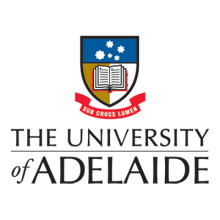South Australian vice-chancellors’ pay would be slashed by almost two-thirds under legislation to stop university leaders earning more than the state’s top politician.
A bill before state parliament seeks to amend the acts governing the three public universities so that salaries of new or reappointed vice-chancellors cannot exceed the premier’s pay.
The bill was introduced by Robert Simms, a Greens member of the state’s upper house and a former federal senator, Adelaide city councillor and Flinders University student council president. He said it was inappropriate for vice-chancellors to be “paid like multinational corporate CEOs”, particularly at a time when universities were enduring significant job losses.
“It’s pretty obscene that vice-chancellors are being paid exorbitant salaries that are so out of step with community expectations,” he said. “The bill seems to have started an important conversation. I’ve had lots of positive feedback about it.”
The three universities’ leaders earned an average of more than A$1.1 million (£600,000) each last year. South Australian Premier Steven Marshall reportedly pockets A$418,000.
The bill appears unlikely to be debated before parliament is suspended, with just two more sitting weeks scheduled before the next election in March. Extra sittings may be ordered by the newly installed speaker, Dan Cregan, a defector from the governing Liberal Party who ousted the former speaker in a secret ballot, but Mr Simms said he did not expect this.
If time runs out for the current parliament to consider his bill, he plans to reintroduce it as part of a broader suite of reforms “and try my luck with whoever’s in government”.
A new code developed by the University Chancellors Council, which is convened by Flinders chancellor Stephen Gerlach, requires universities to disclose how much they pay their top executives. Although Mr Simms agreed that improved transparency was desirable, he said, “I don’t think that goes far enough.”
He said he was not concerned that his bill could encourage political meddling in university operations. “That horse has already well and truly bolted,” he said, referring to the federal government’s recent reforms to course fees and subsidies.
“Parliaments have a role to play in setting out the governance of universities – who might be on the university council, how much should they be paid and so on. Those things are very much in the remit of the state parliament, given that the state parliament establishes the universities through an act.”
He also dismissed arguments that universities needed to be able to offer seven-figure salaries to attract top leadership talent. “Most people, particularly those in the university sector, would say [A$1 million-plus] is a lot of money when facing job cuts.”
Vice-chancellors are not the only university executives who out-earn the premier. Institutional accounts suggest that eight executives at the University of Adelaide, six at the University of South Australia and nine at Flinders pocketed more than the premier last year.
Mr Simms acknowledged that his bill might need redrafting to include caps on other university executive salaries. He said he would also propose measures to revive staff and student representation on governing bodies.
“It’s time to start looking at where university councils find their membership, and how we ensure we have people from more diverse skill sets,” he said. “It seems that you have to be a mining executive or former Liberal Party minister before you get a seat on a university council.”
Register to continue
Why register?
- Registration is free and only takes a moment
- Once registered, you can read 3 articles a month
- Sign up for our newsletter
Subscribe
Or subscribe for unlimited access to:
- Unlimited access to news, views, insights & reviews
- Digital editions
- Digital access to THE’s university and college rankings analysis
Already registered or a current subscriber? Login












